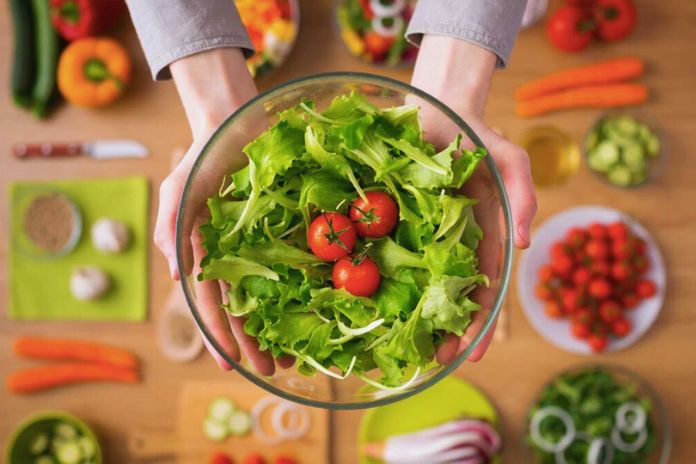The diet industry offers all kinds; with very few calories, similar to fasts, many prohibit carbohydrates, others propose eating just one food for the whole day (such as yogurt, boiled potatoes, or cheese), and still others are based on the consumption of vegetable broths and just one meal a day. But do these diets really work? And above all, can they hurt?
The Dangers Of The Flash Diet
What Causes Weight Loss With A Fast/Restrictive Diet?
The body is made up mainly of water, lean mass ( muscle ), and fat mass. By losing weight in one or two weeks, the kilos lost are primarily water and lean mass. When you want to lose weight, the goal is to eliminate excess fat mass (here you can find out how to calculate the fat mass present in your body), that is, that part of the body which, if in excess, worsens our health, such as abdominal fat which increases cardiovascular risk and more. To reduce body fat, however, you need the right amount of time.
After a fast diet or a restrictive diet, the kilos of water are recovered almost immediately, but not the lost lean mass, which, in fact, is a deterioration of the body, as muscle is a protective element for our health and must be preserved or increased when you want to lose weight. Losing lean mass can also affect your metabolism, making it less efficient, so when you start eating normally again, you quickly regain the lost weight and with interest, a yo-yo effect.
Forget About Crash Diets; Eat A Healthy Diet
A healthy diet should support your health and not put it at risk; the key is balanced nutrition, planning, and moderation. Avoid fasting or extreme diets; instead, focus on finding your balance between healthy eating and conscious food choices; here are some tips to get started;
- Eat with variety and balance; fresh fruit and vegetables, whole grains, lean proteins, and sources of healthy fats should never be excluded.
- Check portion sizes to avoid excess calories. Eating moderate portions can help maintain body weight and prevent obesity.
- Alternate lean protein sources: chicken, fish, legumes, eggs, dairy products, and fresh or hard cheeses such as Grana Padano DOP, rich in proteins with the nine essential amino acids, the most significant quantity of calcium available among the most consumed cheeses, vitamin B12 and important antioxidants such as zinc, selenium, and vitamin A.
- Includes plant-based fats such as those found in olive oil, avocados, nuts, and seeds while limiting your intake of saturated and trans fats.
- Reduce sugars; replace sweet drinks with unsweetened herbal teas; limit sweets to 1-2 times a week; opt for savory breakfasts; and use fresh fruit to sweeten yogurt and smoothies.
- Limit alcohol as much as possible; there are no levels of alcohol consumption that do not pose health risks. Furthermore, the calories from alcoholic beverages are devoid of any nutritional value but are included in the daily energy balance and can contribute to weight gain if in excess.
A balanced diet must provide energy according to a correct energy balance, including carbohydrates, proteins, and fats in the right proportion to meet the body’s needs. Organizing a balanced diet can be complex; the Calorie Menu program can help you with this; a personalized program for the calories you should consume every day that offers four menus balanced in macro and micronutrients; you can also find it in the menopause version or the Sustainable Vegetarian Diet which respects animals and the planet. Remember, if you have pathologies or follow chronic pharmacological therapies for your diet, you must always consult a doctor specialized in food science or a nutritional biologist to have a personalized food plan prescribed.
What Is The Best Diet?
The Mediterranean Diet is a healthy and sustainable eating model that helps prevent diseases such as diabetes and cardiovascular diseases, as well as being economical and respectful of the environment. It provides a balanced mix of proteins, carbohydrates, and fats, with a low glycemic index and a high fiber and antioxidant content. A distinctive element is the varied and tasty combination of foods while still guaranteeing complete nutrition, such as:
- cereals with legumes,
- cereals with foods of animal origin,
- fish or meat with vegetables).
The day must have a food plan and divide the day’s meals into five moments: breakfast, morning snack, lunch, and dinner. The distribution of meals follows specific rules at a daily level (breakfast, snacks, lunch, dinner) and occasionally (holiday and weekday meals). In 2010, UNESCO recognized the Mediterranean Diet as an Intangible Cultural Heritage of Humanity as an example of cultural richness linked to the territory, conviviality and society with food that is transformed into an actual act of relationship and sharing.
Read Also: 9 Grandmother’s Remedies To Relieve Intimate Itching




